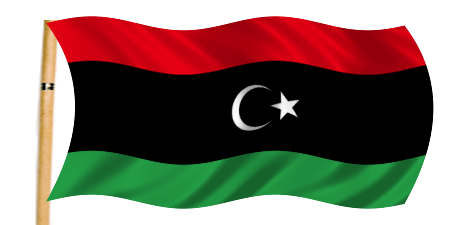غالية الذرعاني
مشرف منتدى

وسام النشاط :
وسام المبدع :
البلد : ليبيا
عدد المساهمات : 268
نقاط : 511
تاريخ التسجيل : 29/04/2010
المهنة : معلمة
 |  موضوع: The Origin of Language, 1 موضوع: The Origin of Language, 1  2010-09-13, 16:36 2010-09-13, 16:36 | |
| The Origin of Language
and Communication
Brad Harrub, Ph.D., Bert Thompson, Ph.D., and Dave Miller, Ph.D.
By age four, most humans have developed an ability to communicate through oral language. By age six or seven, most humans can comprehend, as well as express, written thoughts. These unique abilities of communicating through a native language clearly separate humans from all animals. The obvious question then arises, where did we obtain this distinctive trait? Organic evolution has proven unable to elucidate the origin of language and communication. Knowing how beneficial this ability is to humans, one would wonder why this skill has not evolved in other species. Materialistic science is insufficient at explaining not only how speech came about, but also why we have so many different languages. Linguistic research, combined with neurological studies, has determined that human speech is highly dependent on a neuronal network located in specific sites within the brain. This intricate arrangement of neurons, and the anatomical components necessary for speech, cannot be reduced in such a way that one could produce a “transitional” form of communication. The following paper examines the true origin of speech and language, and the anatomical and physiological requirements. The evidence conclusively implies that humans were created with the unique ability to employ speech for communication.
n 1994, an article appeared in Time magazine titled ‘How man began’. Within that article was the following bold assertion: ‘No single, essential difference separates human beings from other animals’.[ Yet, in what is obviously a contradiction to such a statement, all evolutionists admit that communication via speech is uniquely human—so much so that it often is used as the singular, and most important, dividing line between humans and animals. In his book, Eve Spoke, evolutionist Philip Lieberman admitted:
‘Speech is so essential to our concept of intelligence that its possession is virtually equated with being human. Animals who talk are human, because what sets us apart from other animals is the “gift” of speech’ [emphasis in original]
In The Cambridge Encyclopedia of Human Evolution, editors Jones, Martin, and Pilbeam conceded that ‘there are no non-human languages,’ and then went on to observe that ‘language is an adaptation unique to humans, and yet the nature of its uniqueness and its biological basis are notoriously difficult to define’ [emphasis added. In his book, The Symbolic Species: The Co-Evolution of Language and the Brain, Terrance Deacon noted:
‘In this context, then, consider the case of human language. It is one of the most distinctive behavioral adaptations on the planet. Languages evolved in only one species, in only one way, without precedent, except in the most general sense. And the differences between languages and all other natural modes of communicating are vast.
What events transpired that have allowed humans to speak, while animals remain silent? If we are to believe the evolutionary teaching currently taking place in colleges and universities around the world, speech evolved as a natural process over time. Yet no one is quite sure how, and there are no known animals that are in a transition phase from non-speaking to speaking. In fact, in the Atlas of Languages, this remarkable admission can be found: ‘No languageless community has ever been found’ This represents no small problem for evolution.
In fact, the origin of speech and language (along with the development of sex and reproduction) remains one of the most significant hurdles in evolutionary theory, even in the twenty-first century. In an effort “make the problem go away,” some evolutionists have chosen not to even address the problem. Jean Aitchison noted:
‘In 1866, a ban on the topic was incorporated into the founding statutes of the Linguistic Society of Paris, perhaps the foremost academic linguistic institution of the time: ‘The Society does not accept papers on either the origin of language or the invention of a universal language.
That is an amazing (albeit inadvertent) admission of defeat, especially coming from a group of such eminent scientists, researchers, and scholars. While remaining quiet worked well for a while, evolutionists now realize that they need a materialistic answer for this problem.
The truth of the matter is, however, that the origin of human languages can be discerned—but not via the theory of evolution. We invite your attention to the discussion that follows, which demonstrates conclusively that humans were created with the unique ability to employ speech for communication.
Evolutionary Theories on the Origin of Speech
Many animals are capable of using sounds to communicate. However, there is a colossal difference between the hoot of an owl or the grunt of a pig, and a human standing before an audience reciting Robert Frost’s ‘The Road Not Taken.’ This enormous chasm between humans and animals has led to a multiplicity of theories on exactly how man came upon this unequaled capability. Many researchers have focused on the capabilities of animals—sounds and gestures—in an effort to understand the physiological mechanism underlying communication. But there is a single, common theme that stands out amidst all the theories: ‘The world’s languages evolved spontaneously. They were not designed[emphasis added].
|
|













